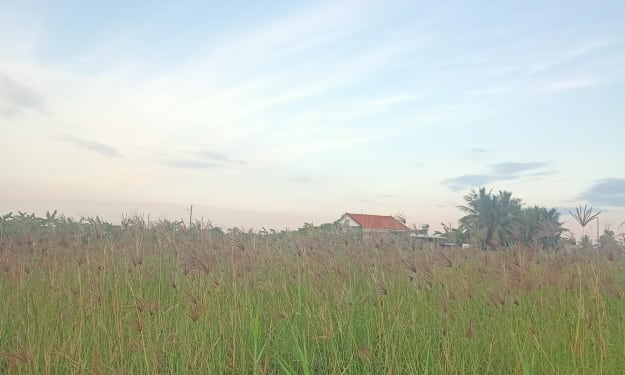Challenging The Columbus Myth
''African Discoverers Of America''

Subtitle: Exploring the Pre-Columbian African Presence in the Americas
Introduction:
Today, historians no longer conceal the fact that Christopher Columbus was not the first to discover America. How could he be the pioneer of a land where rich cultures and histories already thrived? As an Italian explorer, when Columbus reached America's shores, native people were already there to welcome him. Thus, the fabricated history that Christopher Columbus discovered America does not withstand scrutiny. But if not Columbus, then who truly discovered America? Fortunately, today we can use historical records to shed light on the first arrival to America. Welcome to a new episode of Black Culture Diary, a channel where we delve into lesser-known and hidden black history, culture, arts, and lost civilizations. In this episode, we will unveil how Africans discovered America before Columbus's arrival. Let's embark on this enlightening journey.
Claiming Historical Connections:
Various groups have laid claim to their own historical connections to the discovery of America. Since a strong historical record of who discovered America first does not exist, people have presented their versions of records. Interestingly, these accounts are supported by evidence. Therefore, our task is to examine these accounts and determine which person or group of people reached America for the very first time.
Vikings, Irish, Welsh, and Scottish Claims:
The Vikings, for example, point to their colonization of Iceland and Greenland over a thousand years ago. Leif Erickson, a Viking, is believed to have stumbled upon new lands during his journey to convert Greenland to Christianity. The Irish claim involves Saint Brendan, an Irish monk who, in the 6th century, is said to have sailed to America in his coracle, a traditional boat, and discovered distant lands thousands of kilometers away. The Welsh claim is linked to Madog ab Owain, who is believed to have landed in America in the year 1170. There is also the Scottish claim attributed to Henry Sinclair, the Earl of Orkney, who is said to have reached Westford, Massachusetts, in 1398. These stories of discovery often capture popular imagination but obscure the true beginning of the story of how Africans were forcibly brought to American soil.
Acknowledging African Presence:
It is important to acknowledge that African history has been largely erased from mainstream historical narratives. However, it is essential to examine the evidence and consider facts rather than dismissing the idea outright. Facts can change based on various factors, but evidence remains uncontradicted, uncontroverted, and irrefutable. This is where the African version of the American discovery comes into play, which is striking and backed up by strong evidence.
Early African Presence:
Contrary to popular belief, there is evidence to suggest that Africans had connections to the Americas before Columbus. However, further exploration of this history is necessary to gain a more complete understanding of the complex interactions between different cultures and peoples throughout history. It is crucial to understand that American history did not begin with slavery. If this were true, it would mean that Africans came to America as slaves, captured from Africa. However, this incident had to take place after America was established, which rules out African presence in America before its discovery. Hence, it should be made clear that American history did not begin with slavery.
Columbus's Account and Map Evidence:
One of the strongest pieces of evidence comes from an account by Columbus himself. In 1492, Columbus noted in his journal how Native Americans confirmed the presence of black-skinned people who had come from the Southeastern boats, engaging in trade and possessing gold-tipped spears. Columbus even sent samples of these spears back to Spain, where they were found to have similar properties to those being forged in West African Guinea
Conclusion:
The evidence presented challenges the traditional narrative and points to the possibility of Africans exploring and reaching the Americas before Columbus. It is essential to delve deeper into this history and examine the complex interactions between different cultures and peoples throughout time. The presence of African civilizations in the Americas, the similarities between African and indigenous American cultures, and the undeniable African features depicted in ancient Olmec statues all contribute to a more inclusive and accurate understanding of the early exploration and civilizations in the Americas.
It is unfortunate that alternative historical narratives have been suppressed, silencing researchers who bring forth evidence that contradicts the accepted history. The glorification of Christopher Columbus as the discoverer of America needs to be reconsidered in light of this new information. By embracing a broader perspective and acknowledging the African presence, we can build a stronger foundation for understanding the history of the Americas.
As we continue to unearth hidden histories and shed light on the accomplishments and contributions of black cultures and civilizations, it is vital to support and promote a more inclusive and accurate black history education. By doing so, we can challenge the narratives that have excluded Africans from early exploration and civilizations in the Americas and ensure a more comprehensive understanding of our shared past.
Join us on this journey of discovery as we uncover the richness and complexity of black culture, history, civilization, and identity. Subscribe to our channel and be part of our community as we strive to rewrite the historical narrative and give voice to the silenced chapters of history. Together, let us embrace the true diversity and interconnectedness of human history.
About the Creator
Redmark Foreal
Explore captivating articles on facts, history, life hacks, politics, psychology, poems, and mysteries. Discover engaging content that informs, entertains, and inspires. Happy reading
Enjoyed the story? Support the Creator.
Subscribe for free to receive all their stories in your feed. You could also pledge your support or give them a one-off tip, letting them know you appreciate their work.






Comments
There are no comments for this story
Be the first to respond and start the conversation.